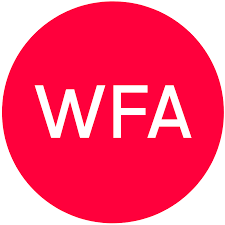In-House Teams Lag Behind in AI Adoption
Artificial intelligence may have dominated conversations at Cannes Lions 2025, but a new report from the World Federation of Advertisers (WFA) reveals that many in-house marketing teams are still slow to embrace the technology.
According to interim findings from WFA’s In-House Use of AI research, only 17 percent of in-house agency leaders have fully integrated AI into their operations, while 61 percent remain stuck in early testing stages.
This gap between ambition and execution shows that, despite the global buzz around AI, many in-house teams are still struggling to translate potential into performance.
Ethical and Legal Concerns Stall Progress
Furthermore, the WFA report identifies two major obstacles preventing adoption: ethical hesitation and data privacy concerns.
About 71 percent of respondents cited ethical uncertainty, while 57 percent expressed fear over copyright and data misuse.
These concerns have created a cautious approach to AI integration, limiting innovation within in-house environments.
As AI continues to reshape marketing worldwide, these findings reveal a growing need for structured governance, clear policy frameworks, and stronger internal education.
Leaders Call for Purpose-Driven Integration
During the WFA In-House Forum at Cannes Lions, hosted by OLIVER, in-house leaders and brand executives discussed how to move beyond the hype and make AI adoption meaningful.
They agreed that brands must not only use AI for speed and savings but also align it with their core mission and values.
One brand shared how it uses AI to drive positive cultural transformation within its industry proving that technology, when guided by purpose, can strengthen brand authenticity.
Keeping People at the Core of Innovation
However, participants warned that technology should never overshadow people. Many leaders stressed that successful AI integration depends on employee confidence and collaboration.
One contributor described their approach as an “AI sandwich,” where technology sits at the center but human insight anchors both sides, ensuring empathy and creativity remain intact.
By investing in training and role clarity, in-house leaders can help their teams view AI not as a threat but as a collaborative tool for smarter marketing.
Turning Experimentation into Execution
Moreover, real-world examples are already showing the potential of AI in action. Some in-house agencies now use AI for automated brand vetting, creative asset generation, and workflow optimization.
Also Watch:MARKETING EDGE ONTV
These practical applications demonstrate how small-scale experiments can evolve into organization-wide success stories.
In-house teams, with their unique proximity to brand operations, are in a strong position to scale these wins and set new marketing standards.
Selecting the Right Tools and Safeguards
Choosing the right AI platforms remains critical. Beyond functionality, teams must prioritize data security, compliance, and ethical standards. Because they understand their brand’s DNA, in-house marketers are well-equipped to lead AI adoption responsibly.
Many modern platforms now provide centralized workflows, scalable content creation, and strict data protections that reinforce brand safety.
Building a Strategic Advantage Through AI
According to Brenna Brandes, Global Marketing Services Manager at WFA, in-house agencies possess a distinct edge. “The role of in-house agencies is to drive the adoption and responsible implementation of AI, leveraging their closeness to both the brand and the entire marketing value chain,” she explained.
In conclusion, WFA emphasizes that successful AI integration demands agility, shared ownership, and accountability.
As marketing enters a new digital era, in-house teams have the opportunity to lead transformation turning AI from an experimental concept into a strategic advantage that powers creativity, efficiency, and growth.
ALSO WATCH MARKETING EDGE ONTV






Comment
No comments found.